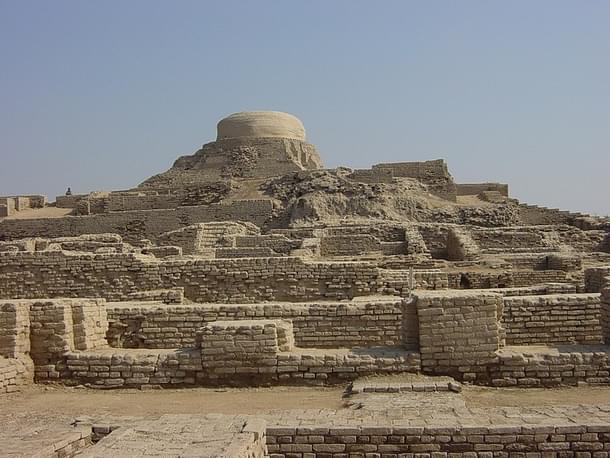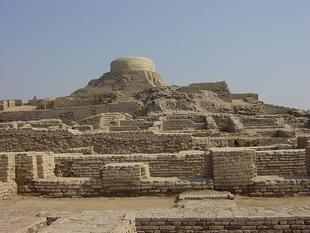Insta
What Wiped Out The Indus Valley Civilisation? A 900-Year-Long Drought, Say IIT-Kharagpur Scientists
Swarajya Staff
Apr 16, 2018, 10:54 AM | Updated 10:54 AM IST
Save & read from anywhere!
Bookmark stories for easy access on any device or the Swarajya app.


A 900-year-long drought may have wiped out the Indus Valley Civilisation 4,350 years ago, scientists at the Indian Institute of Technology in Kharagpur have found, rejecting the theory that a drought which lasted little over 200 years may have triggered the civilisation’s decline, Times of India has reported.
These scientists studied the monsoon’s variability for the past 5,000 years and found that the there was hardly any rain in the northwest Himalayas for 900 long years. This led to the drying up of the source of water that fed the rivers along which the civilisation thrived, such as Indus and Sutlej. This forced the inhabitants towards the eastern and southern parts of the sub-continent.
The monsoon variability study was conducted in the Tso Moriri Lake in Ladakh. This water body was fed by the same source as the rivers of the Indus Valley.
“The study revealed that from 2,350 BC (4,350 years ago) till 1,450 BC, the monsoon had a major weakening effect over the zone where the civilisation flourished. A drought-like situation developed, forcing residents to abandon their settlements in search of greener pastures,” said lead researcher Anil Kumar Gupta.
He added that the people gradually migrated from the Indus Valley to the Ganga-Yamuna valley in eastern and central Uttar Pradesh; Bihar and Bengal in the east; MP, south of Vindhyachal and south Gujarat in the south.
The study has found a place in this month’s edition of the prestigious Quaternary International Journal published by Elsevier.





